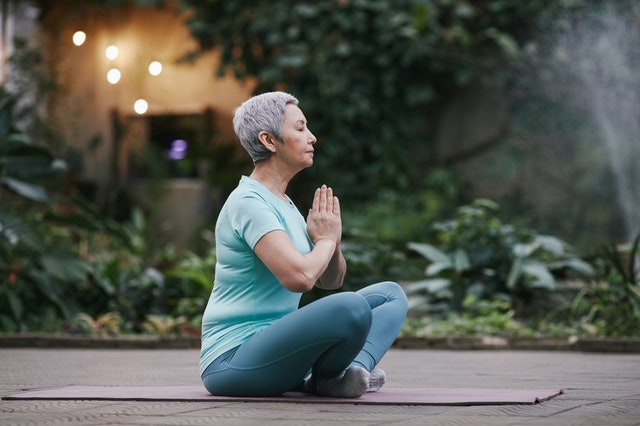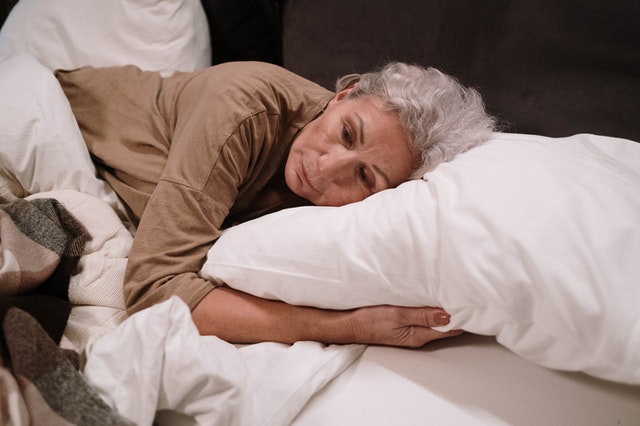Aging is one of the most natural things to happen to us. No matter how healthy or fit we are, we all will age. And as we grow older, we often find it difficult to do things that we have almost always taken for granted. Not being able to sleep properly is one such problem that is widely seen among the elderly. Among all other sleep disorders, the most common is insomnia, which has several medical and psychiatric repercussions.
While sleep disorders aren’t uncommon among young people; their recurrence among the elderly is incredibly high. According to estimates, close to 10-30% of adults live with insomnia. In a study published at the NCBI, made at St. Philomena’s Hospital, Bengaluru, chronic insomnia was found in as many as 33% of the patients. Elderly people would often show sleep changes that can be directly attributed to their age. This can range from fragmented sleep, early awakening, difficulty in falling asleep, repeated instances of waking up earlier than desired, less time spent in deeper stages of sleep, and an overall less total sleep time. Let’s look at the possible factors contributing to insomnia.
Causes of Insomnia among the elderly:

It is very important to understand the root cause of insomnia before beginning the process of treatment. Insomnia can broadly be classified into two parts: primary insomnia, where insomnia occurs independently, and secondary insomnia, where some underlying medical or psychiatric conditions give rise to insomnia. Some important causes leading to insomnia among the elderly are:
1. Sleep Pattern:
Normal changes in the sleep pattern occur with age. This might entail getting tired quickly and sleeping early, resulting in waking up early.
2. Changes in Activity:
Our physical and social activity may decrease as we become elderly. Lack of activity may contribute to insomnia
3. Medications:
As people grow older, they may have to take lots of medicines, some of which can contribute to sleep disorders. This may include antidepressants or medications for asthma.
4. Mental Illness:
Mental Illnesses including depression and anxiety may cause insomnia among the elderly
5. Health Conditions:
Several medical conditions like the Alzheimer’s disease, Parkinson’s disease, chronic pain, cancer, diabetes, heart disease might affect sleep among the elderly.
6. Lifestyle factors:
If caffeine or alcohol is consumed excessively then they might affect normal sleep as well. Smoking, especially before bedtime, may contribute to insomnia
7. Stress:
Stressful life events and even excessive stress during the normal course of life may significantly affect normal sleep processes.
Apart from insomnia, some other common sleep disorders, including, Circadian Rhythm Sleep Disorders, Sleep-related Breathing Disorders, Periodic Limb Movements, and Restless Legs Syndrome, REM Sleep Behaviour Disorder may also cause sleeplessness or disturbed sleep among the elderly.
Complications
Sleep is so very fundamental to our existence that insomnia or other forms of sleep disorder may have deep medical and psychological repercussions.
1. Elevated risk of long-term diseases or exacerbated risk of deterioration of the present health condition.
2. Psychological disorders, including depression and anxiety, which in turn become a cause for further sleep deprivation among the elderly, leading to a vicious cycle
3. Decreased ability to do daily activities.
4. Impaired concentration and mental agility
Tips to overcome insomnia among the elderly

1. Stimulus Control:
If someone is in bed for more than 20 minutes without being able to sleep, he would need to get up and busy and try to sleep only when he is tired again.
2. Strict sleep routine :
Strictly following a sleep routine of going to bed and waking up is extremely essential to fight insomnia
3. Electronic gadgets:
Avoiding electronic gadgets before sleep is essential to keep insomnia at bay
4. Lifestyle:
In the case of chronic insomnia, caffeine should be restricted before evening. Consuming alcohol and smoking should also be avoided before bedtime.
5. Ambience:
Maintaining a stable and comfortable room temperature, along with very low levels of light helps in sleep.
6. Exercise:
Exercising during the day and avoiding it two-three hours before sleep may help get proper sleep
In case the problems of insomnia persist, it is best to get in touch with a physician to determine the underlying cause of the disease and start treatment accordingly. Indeed, insomnia is a terrible condition to be in and timely intervention is needed for an overall improvement in physical and psychological health.


